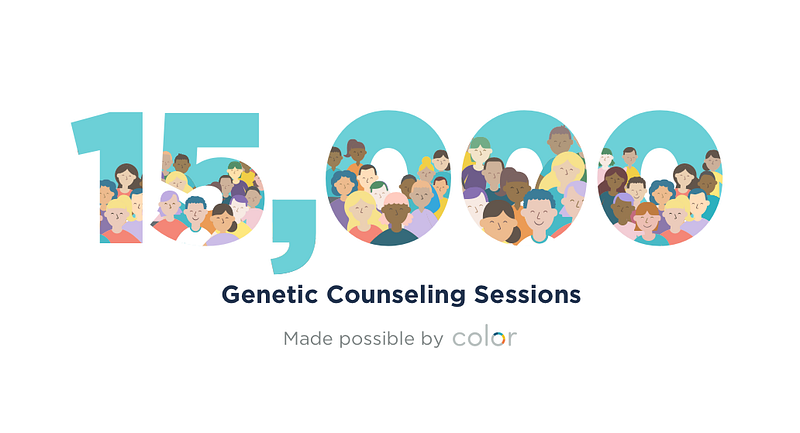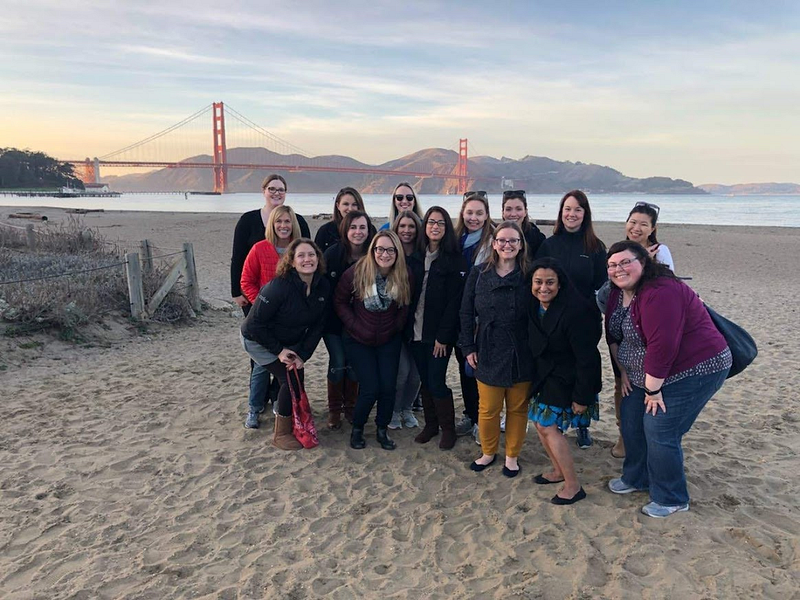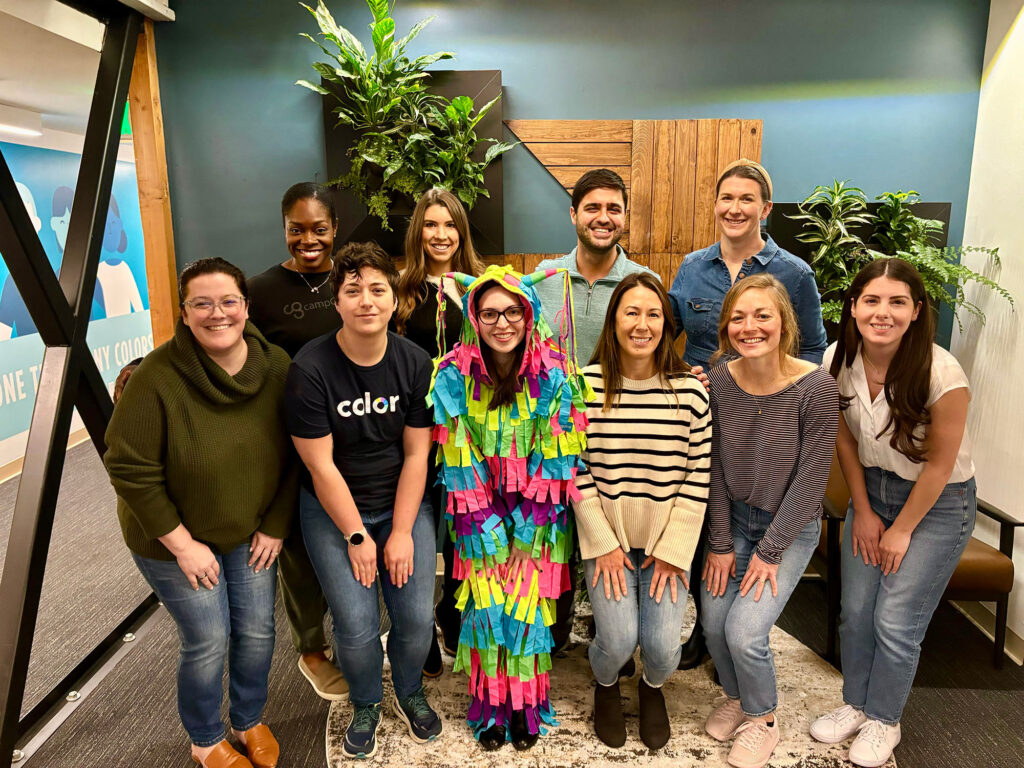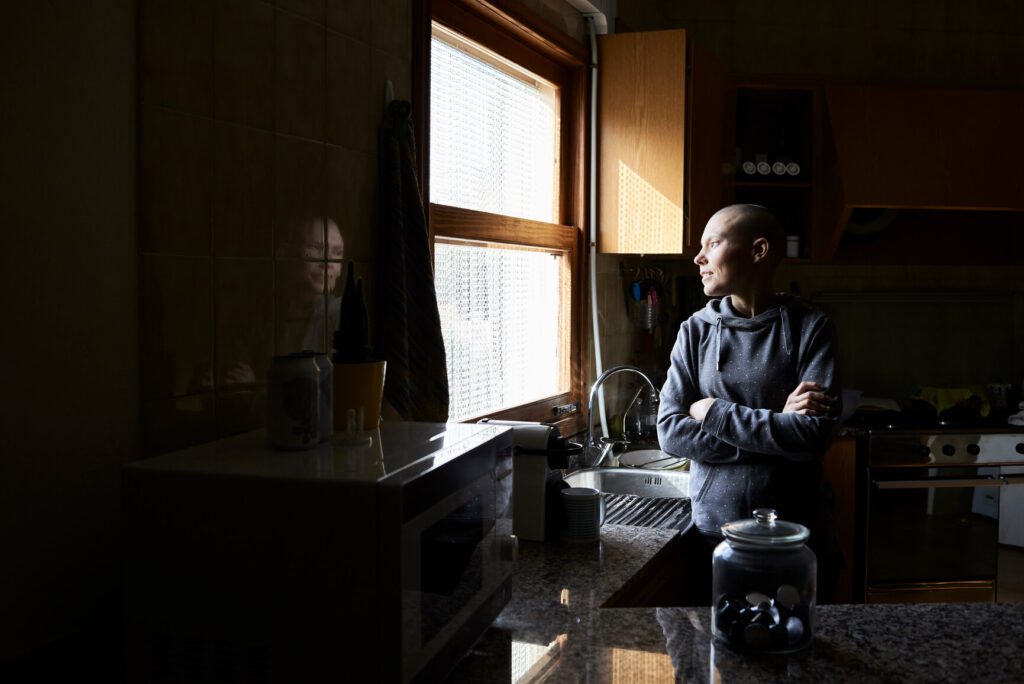News & Articles
A Genetic Counseling Milestone
Lauren Ryan
Today at Color, we are celebrating a gigantic milestone: our 15,000th genetic counseling session!
Color’s belief in the value of genetic counseling, and our role in making genetic information meaningful and useful to people, has been clear from the very beginning — one of our first employees was a genetic counselor, we sought the advice from experts in the field like Beth Crawford and others, and it’s why access to genetic counseling has always been included with all Color services.
Achieving this major accomplishment would not have been possible without the tireless efforts by Color’s amazing genetic counselors, the support from everyone on the broader team, as well as the incredible, custom-built software that allows us to provide high-quality services with such efficiency.
At Color we have taken genetic counseling out of the four walls of the hospital and created a common infrastructure for a traditional, clinical service that is cost-effective and scalable without sacrificing quality. By using innovative technology and design to collect an individual’s family history, generate a pedigree, display all the relevant data from their sequencing and reports, and document our conversations with them, Color’s genetic counselors can see many more patients each week than in a traditional genetics clinic. In a recent study of genetic counselors in one state, the average time needed per patient was 3 hours, only 20% of which was spent directly speaking to the patient and 80% on administrative work like paperwork.1 At Color we’ve demonstrated 4–5X greater efficiency and capacity: we spend about 37 total minutes per patient, over half of which is spent on direct care.
In addition to dramatically increasing efficiency and maintaining the highest quality, perhaps an equally significant consequence of this innovative approach is the impact on the quality of life and job satisfaction of our genetic counselors. When we remove so many of the time-consuming and often irritating administrative tasks from our day, we are free to participate in many other activities. We work on several different types of tasks in a given day, and with a wide variety of other specialists, including UX designers, software engineers, business and marketing experts, lawyers, variant classification scientists, and more. Genetic counselors at Color have:
- Reinvented test reporting to be more patient-friendly
- Driven research projects with academic collaborators
- Worked alongside software engineers to automate our workflows
- Developed company-wide protocols and policies
- Trained and supported sales and business teams
- Raised the visibility of patient experiences and feedback
- And so much more!
Color’s innovative framework and affordable pricing also means we talk to a wide variety of patients who come from very diverse backgrounds, places around the country, levels of education, and motivations for genetic testing. This means each of our telephone sessions themselves are unique and require us to flex a variety of skills depending on the needs of the person on the other end. Automating some of the manual processes also makes the experience higher quality for our clients as well; nearly everyone is able to make an appointment within 48 hours, compared to more than half of genetic counselors surveyed in 2018 who reported a wait time of two weeks or more.2
Another wonderful result of our reduced administrative burden is that we have time left to strategize and bond as a team. Although we are distributed around the country, we make a conscious effort to connect electronically on an ongoing basis to benefit from each other’s expertise and support. Having a network like this in place also makes it easier to seamlessly integrate with leading partners who, like the MAGENTA study, aim to research novel genetic counseling and testing approaches, without having to restrict their recruitment to one or a few major academic centers.
Ongoing education and discussion is absolutely key to our success, particularly for a team that has a large number of remote employees. We meet weekly, and cycle through four topics each month: Project Updates, Case Conference, Journal Club, and Guest Star visits.
- Project updates allow each member of the team to share so everyone is in the loop on status and progress
- Case conference provides a space for individuals to submit interesting cases they’ve seen and seek discussion and feedback across the team
- Journal Club on a relevant and recent paper ensures we’re staying on top of medical literature and new discoveries
- Guest Star presentations from other teams at Color tell us more about the exciting things happening on their team
We also host a team onsite every year at our headquarters to make sure we get some face-to-face time. This event gives us a unique opportunity to dig in to what is going well and what we can improve upon, set goals for the coming year, and get to know each other on a deeper level. Last year, we walked away with some incredible process improvements and project ideas, many of which have already come to fruition.
When we think of technology’s impact on healthcare we often envision advances in testing, targeted therapies, or AI detecting breast cancer on digital mammography, but an often overlooked impact when software takes over tasks like data collection, insurance issues, and clinical documentation is the fact that the healthcare provider’s day can be spent doing more things that matter. As the conversation about automation in genetic counseling continues to gain traction, let’s focus not just on the enormous benefits to the patients, but also to the employees who get to practice at the top of their abilities.
A heartfelt thank you to everyone who helped us reach this latest milestone, and now back to doing the work we love.
References





